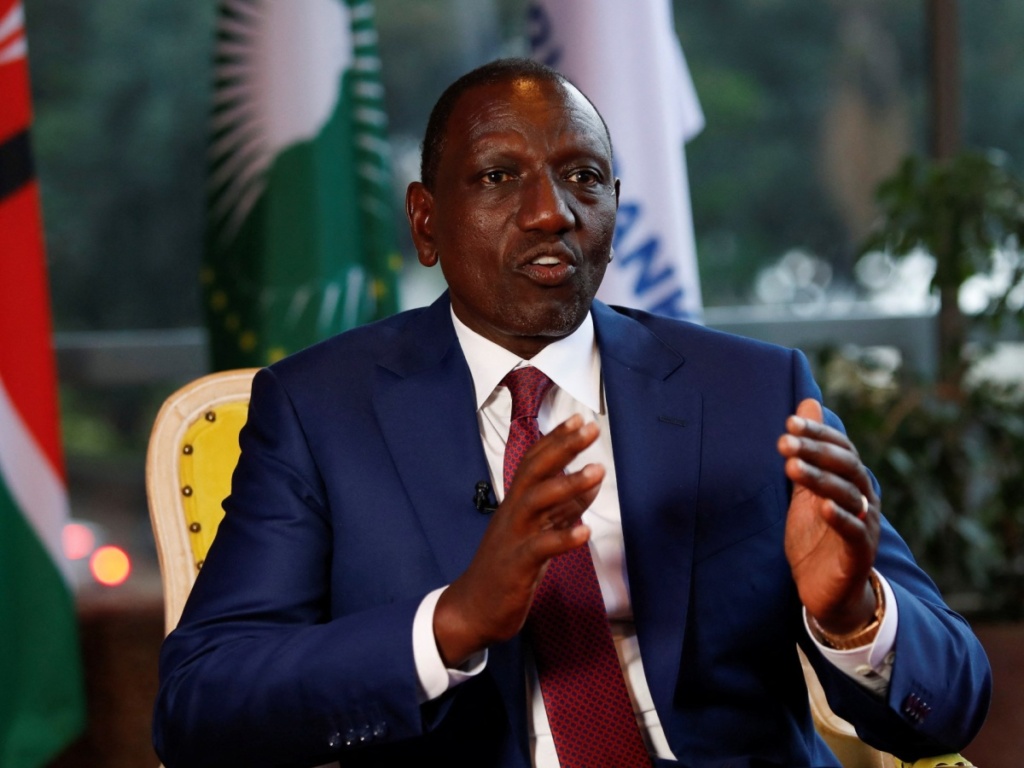
President Joe Biden on Thursday praised Kenya’s William Ruto for “his bold leadership” as the White House marked the first state visit by an African leader in more than 15 years, one that comes as the Nairobi government is sending police to Haiti to help quell gang violence in the Caribbean nation.
The White House announced Biden’s intention to designate Kenya as a major non-NATO ally, an acknowledgment of the growing security partnership between the countries. The 1,000 Kenyan officers preparing to deploy will be part of a multinational force backed by $300 million in U.S. support, but not American troops.
As Ruto was welcomed into the Oval Office for a private meeting, Biden noted that the two were celebrating a 60-year of partnership that was not only “delivering for our nations” but “delivering for the world.”
“It’s remarkable. This visit is not just about our histories. It’s about the future,” Biden said. He added that there’s “virtually no challenge that Kenya and the United States can’t meet together.”
Earlier, Ruto and his wife, Rachel Ruto, had arrived for a pomp-filled ceremony that officials said was aimed at recognizing the growing importance of the U.S.-Kenya relationship. The leaders planned a joint news conference after their meeting and readied for a formal state dinner on the White House grounds.
“At its essence, the NHI is a commitment to eradicate the stark inequalities that have long determined who receives adequate healthcare and who suffers from neglect.
By putting in place a system that ensures equal access to health care regardless of a person’s social and economic circumstances, the NHI takes a bold stride towards a society where no individual must bear an untenable financial burden while seeking medical attention.”
Political opponents have strongly criticized the health care reform as a ploy to win votes ahead of the country’s general election, which occurs on 29th May.
Opponents have vowed to challenge it in court, mainly because it new law prevents wealthy South Africans from paying for additional private health insurance. Eventually and after the policy has been rolled out nationwide, all South Africans will be forced to use publicly-funded healthcare .
In his speech, the President acknowledged that the existing public sector serves a large majority of the population, but faces budget constraints. He said the private sector serves a fraction of society at a far higher cost without a proportional improvement in health outcomes.
“For the health professionals to do their work effectively, they must be well resourced and capacitated in the best ways possible.”
In addition to shortages, the African region faces many other health workforce challenges, including, rising unemployment, excessive out-migration and low quality of training. Low health investment and limited prioritization of the health workforce have critically exposed health systems. Investment in health, especially from domestic sources, is still low and inadequate for many countries to meet the universal health coverage and ensure health security
“The numbers of Africans who have left the continent in search of greener pastures in other parts of the world are staggering. It is a matter that needs to be addressed as a top priority for African governments and indeed all those who wish to see a shift in the historical as well as current trends,” said Honourable Dr Kalumbi Shangula, Minister of Health and Social Services of Namibia.
The charter launched today brought together the health workforce investment efforts of all stakeholders, including national governments, the private health sector, civil society, external financing institutions and development partners in Africa.
“By investing in the health workforce, we not only address the challenges within the sector but also generate dividends in education, employment and gender equality,” said Dr Matshidiso Moeti, WHO Regional Director for Africa. “These investments will contribute to our sustained efforts in attracting more resources and improving the quality of our health workforce.”
Investing in the health workforce will have positive spin-offs in the form of decent jobs, particularly for women and youth who often face barriers to employment. By providing opportunities for education, training and career progression, the Charter will immensely contribute to the economic empowerment of these demographics and fundamentally support inclusive economic growth.
Additionally, health labour force investment also brings multiple returns for health and economies, increasing life expectancy and job creation, while accelerating countries towards the achievement of the Sustainable Development Goals and universal health coverage.
For every US$1 invested in health and sustaining the jobs of health workers, the potential return is as much as US$9. It has also been demonstrated that half of all economic growth globally over the past decade resulted from improvements in health, and that for every added year of life expectancy, the economic growth rate is boosted by 4%.
“Studies show that investments in the health sector yield substantial economic returns, estimating a nine-to-one return on investment. The new narrative that we are promoting is to transform the health sector to move from liability to an asset for the economy of our countries,” said Dr Jean Kaseya, Director-General of the Africa Centre for Disease Control and Prevention.
The Africa Health Workforce Investment Charter was inaugurated in Namibia during the Health Workforce Investment Forum being held from 6 to 8 May 2024. Efforts will continue to be made to engage multisectoral stakeholders and partners on their experiences and achievements, and mobilize commitments, partnerships and investments to deliver on the principles and actions enshrined in the investment charter.










